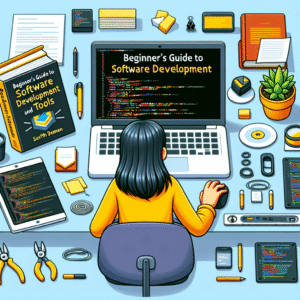🚀 A New Era for Technology and Markets
Artificial Intelligence is no longer a futuristic idea — it has become the backbone of today’s economy. From Wall Street trading floors to the electronics industry and digital banks, AI is pushing innovation forward at a speed we’ve never seen before.
In 2025, the conversation around AI is not only about how smart the technology has become, but also about how it is reshaping global markets. The rivalry between the United States and China makes this transformation even more complex, as both powers compete for leadership in the AI age.
💰 1. Record Investments Are Flowing Into AI
Spending on AI infrastructure is projected to hit $375 billion this year, with forecasts reaching $500 billion in 2026. Tech giants like Meta and Google’s parent company Alphabet are pouring billions into new data centers, cloud systems, and semiconductors.
These investments are not just about improving software — they’re fueling entire industries, from fintech startups to the electronics sector that supplies the chips and devices behind the AI boom.
📈 2. Stock Markets Are Riding the AI Wave
AI-related stocks have skyrocketed, with gains of nearly 170% since 2022. Yet behind the hype, most companies are still figuring out how to turn innovation into profit. Research suggests 95% of firms experimenting with generative AI have not seen a financial return so far.
Some analysts warn that we may be in the middle of an AI bubble, while others argue the productivity benefits are only just beginning to show. Either way, AI has become one of the most influential forces shaping investor sentiment in 2025.
⚡ 3. Real Productivity Gains Are Emerging
Beyond the stock market, AI is already adding value to the real economy. Analysts estimate that AI could contribute 0.5% to U.S. GDP growth this year alone. Nearly a quarter of American economic growth in 2025 is tied to investments in semiconductors, electronics, and cloud systems.
Companies are deploying AI to streamline supply chains, cut costs in banking, and speed up innovation in electronic devices. It’s clear that AI is no longer just a tool for tech giants — it’s becoming a growth engine for multiple sectors.
🇺🇸🤝🇨🇳 4. The U.S.–China Rivalry Defines the Landscape
The race between the U.S. and China to dominate AI is one of the defining stories of this decade.
- The U.S. leads with mega-projects like Stargate, a $500 billion effort involving OpenAI, Oracle, and SoftBank.
- Meanwhile, China has invested more than ¥730 billion ($100 billion) into robotics, smart manufacturing, and healthcare AI.
By 2030, China’s AI adoption could exceed 30%, while the U.S. maintains its dominance in global infrastructure. This competition is not just about technology — it’s shaping trade flows, financial markets, and geopolitical strategy.
🏦 5. Finance Faces New Challenges and Opportunities
AI is reshaping the way financial institutions work. Banks are using it to detect fraud, automate services, and personalize client experiences. At the same time, regulators are increasingly concerned about transparency, ethics, and governance.
Only about 1% of companies say their AI systems are fully mature, yet over 90% plan to expand investments by 2028. The financial sector stands at a crossroads: embrace AI responsibly, or risk letting it become a destabilizing force in global markets.
✅ Conclusion: A Turning Point in 2025
As of August 27, 2025, Artificial Intelligence has moved from hype to reality. It is redefining global finance, reshaping the electronics industry, and intensifying the U.S.–China rivalry.
For investors, entrepreneurs, and policymakers, AI offers both enormous opportunities and serious challenges. The choices made today will determine whether AI becomes a tool for sustainable growth — or a source of instability in the financial system.
❓ Frequently Asked Questions (FAQ)
1. Is the AI boom a financial bubble?
➡️ Possibly — valuations are high, and many companies are not yet profitable. But long-term productivity gains suggest AI has staying power.
2. Who leads in AI today?
➡️ The U.S. dominates in infrastructure and global influence, while China is accelerating practical adoption in healthcare, robotics, and manufacturing.
3. What sectors benefit the most from AI?
➡️ Finance, semiconductors, and consumer electronics are among the top winners, as AI drives demand for smarter devices and faster data processing.
🔑 Keywords naturally included: artificial intelligence, AI finance, AI investments, electronics, semiconductors, U.S.–China AI rivalry, global markets.
High-Value Digital Opportunities You Shouldn’t Miss in 2025
In today’s fast-moving digital economy, every smart move can turn into a huge advantage — whether you’re investing, protecting assets, growing a business, or building software. Here’s a clear guide through some of the most valuable opportunities right now, organized into topics that matter.
🏦 Institutional Crypto Investments: Fidelity’s Move into Digital Assets
When a trusted name like Fidelity steps into crypto, the game changes. Fidelity Crypto has been quietly building secure, regulated access to digital assets for institutional and individual investors.
- Safe custody for Bitcoin and Ethereum
- Regulatory compliance and transparency
- Seamless integration with traditional investment portfolios
💡 See also: Discover more about how regulated crypto platforms are shaping the next wave of finance — it’s not just speculation anymore, it’s strategy.
🚗 Smarter Auto Insurance Quotes: How to Save in 2025
Auto insurance is getting more expensive, but also more competitive. Comparing auto insurance quotes is no longer a hassle — it’s an opportunity to save.
- Instant online quote comparisons across top carriers
- Personalized coverage recommendations
- Discounts for safe drivers and electric vehicles
💡 Discover also: Check how regional providers stack up against national insurers. Sometimes, a local player offers better coverage for less.
🌐 Essential Tools for Online Businesses: From Hosting to Collaboration
Running a modern business means picking the right digital infrastructure. Whether it’s Google Workspace, reliable web hosting, or smart deals like Bluehost coupons, efficiency matters.
- Integrated productivity tools to keep teams aligned
- Scalable hosting solutions with uptime guarantees
- Verified coupons and deals to cut operational costs
💡 See also: Learn how combining professional email, hosting, and security tools can create a seamless environment for growth.
💻 Offshore Web Development: Finding the Right Ruby on Rails Partner
Scaling your product often means scaling your team. Off-shore web development can give you access to world-class talent — if you choose carefully.
- Specialized Ruby on Rails development companies
- Transparent pricing models and time-zone coverage
- Balancing cost, quality, and security in remote partnerships
💡 Discover more: Explore how hybrid on-shore/off-shore models deliver both control and savings for ambitious startups.
Final Thoughts
High-value digital decisions aren’t just about chasing trends — they’re about aligning your resources with trusted platforms, competitive services, and forward-looking partners. Whether you’re diversifying investments, optimizing insurance, building online infrastructure, or expanding your dev team, staying informed keeps you ahead in the race.
Curious about other smart digital moves? See also our in-depth guides on fintech, cloud hosting, and global talent strategies.


